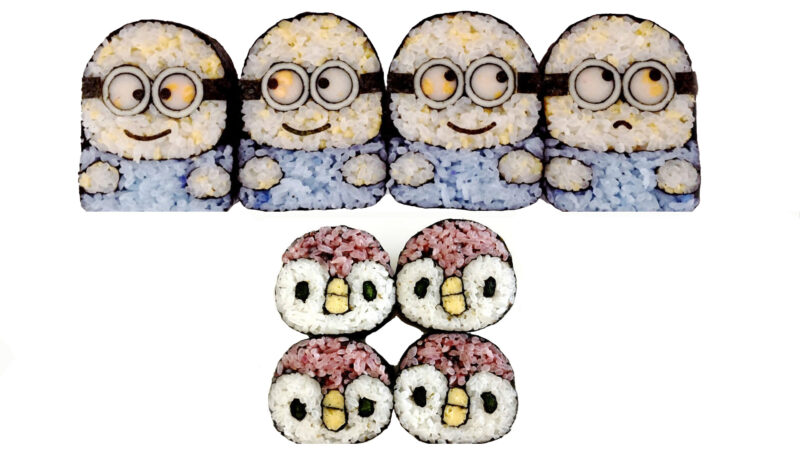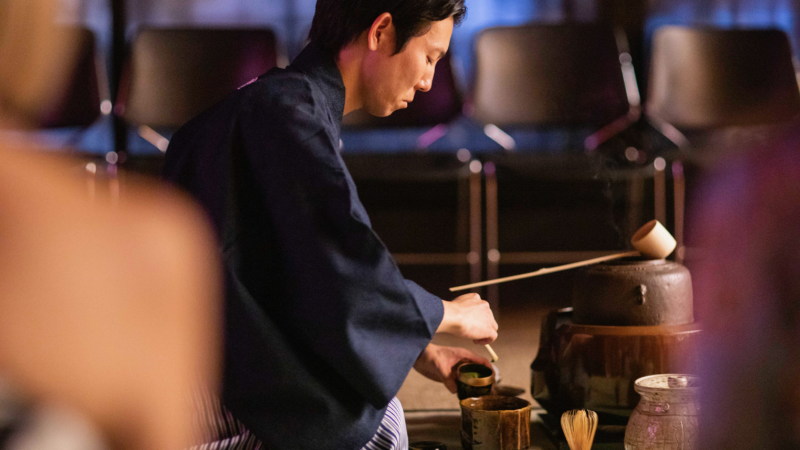Japanese Cooking Blog with Asako Nonaka #13
Asako Nonaka ◆ November 16, 2015
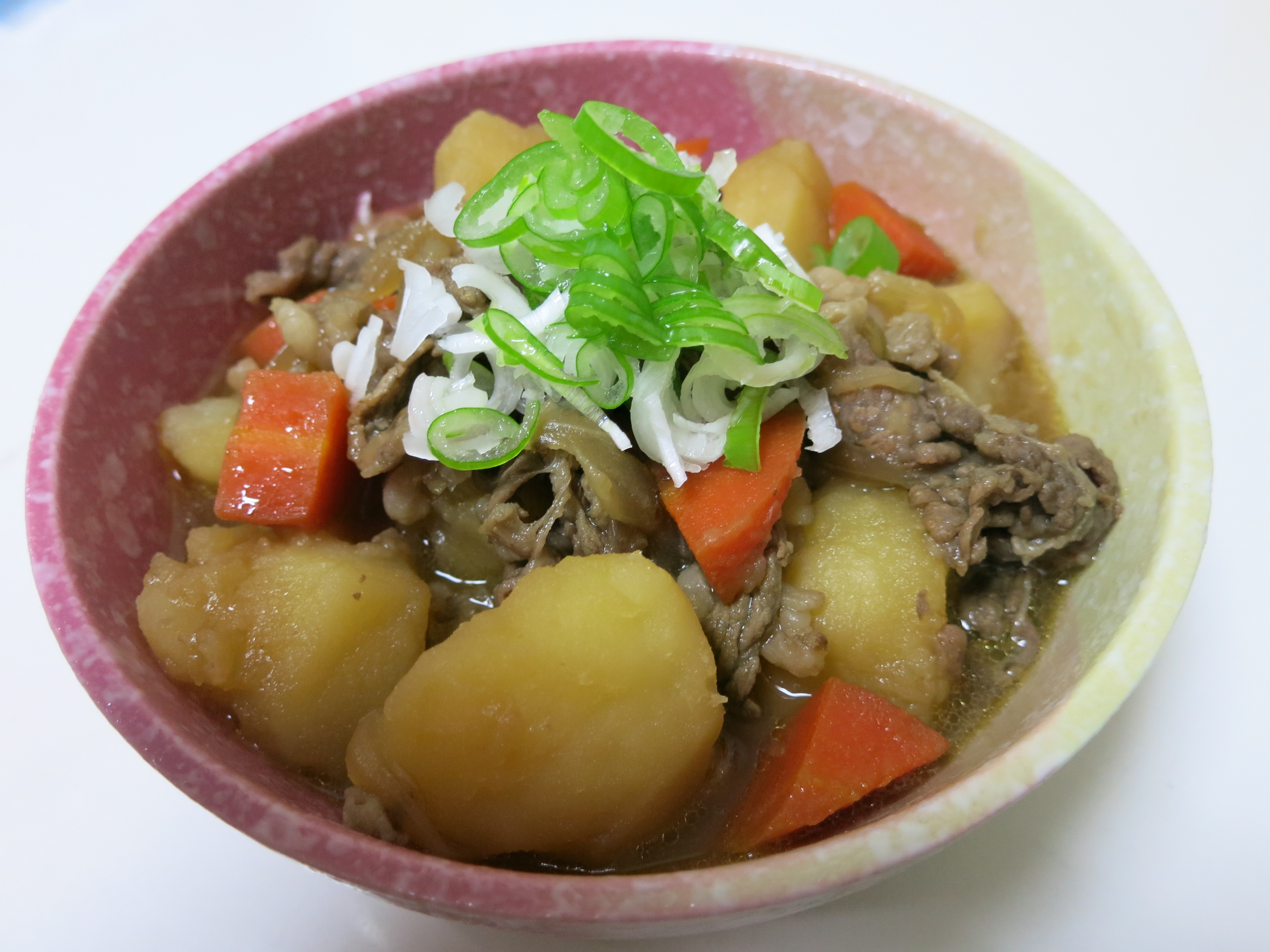
Last month, The World Health Organization (WHO) reported that processed meats such as bacon, sausage and ham cause cancer. Red meats including beef, lamb and pork are also expected to be listed as being “probably carcinogenic to humans.”
This news that processed and red meats have become bad foods for our body and it worries us if we can’t eat bacon, ham and yakiniku any more.
As long as we look at the title of the news, it looks like processed and red meats are always harmful. Reading the report carefully, you can understand it is not true. The important thing is to get the meaning right and reconsider the dietary habit including meats.
Firstly, let’s see the detail of the report by the International Agency for Research on Cancer (IARC). It says each 50g of processed meats a day – the equivalent of one sausage, or less than two slices of bacon – increases the chance of developing bowel cancer by 18%.
According to Cancer Research UK, around six in every 100 people get bowel cancer in their lives in the UK. If they were all given an extra 50g of processed meats a day then the risk would increase by 18% to around seven in 100 people. The WHO says there was limited evidence that 100g of red meat a day increased the risk of cancer by 17%. This report doesn’t mean that 18 in 100 people get bowel cancer after each eating 50g of processed meats. This is the reason why we might get confused.
The National Cancer Research Center in Japan says that there is little risk of getting bowel cancer for the average Japanese person’s meat consumption in response to the WHO’s report. According to the report by the center in 2011, men who eat 100g of meats a day and women who eat 80g of red meats a day have the risk of getting bowel cancer. But there is no evidence to get the risk for people who eat the average amount of meats.
By the National Health and Nutrition Examination Survey 2013, Japanese men’s average processed meats consumption is 13.7g and the average red meats consumption is 41.3g so the total is around 55g. Japanese women’s average processed meats consumption is 11.0g and the average red meats consumption is 28.7g so the total is around 40g. So if Japanese people eat twice as much as the average meats a day for the rest of their life, they have the risk of getting bowel cancer.
The people who eat meats a lot everyday need to change their eating habits. But the people who eat the average amount of meats don’t have to worry themselves about that. The Japanese food foundation is “1 ju 3 sai” which means 1 soup and 3 dishes containing a variety of seasonal foods. So they have a balanced diet and don’t have meats a lot. Meats are actually good nutrition of protein, iron, zinc, and vitamins so it’s important to ingest them properly.
So as I said at first, I want you to reconsider not only your meats consumption but also your whole eating habits. Here are 5 points to recommend:
- Don’t have too many meats.
- Have a balanced diet of grains, vegetables, proteins and fruits.
- Drink a lot of water.
- Drink alcohol moderately.
- Have an exercise habit.
This time I will introduce the recipe of “Niku-jaga” which literally means meats and potatoes. This is the Japanese representative home meal. It is easy to cook and you can have proteins and vegetables at the same time so please feel free to try!
Recipe: Niku-jaga (Simmered Meats and Potatoes)
Ingredients
[one_half]3-4 potatoes
1 onion
1 carrot
1/2 lb of beef
2 tbsp of olive oil[/one_half][one_half_last]
2 tbsp of sake
2 tbsp of sugar
1 tbsp of mirin
4 tbsp of soy sauce
2 cups of dashi[/one_half_last]
Directions
- Cut the potatoes and soak in water for a while and drain.
- Slice the onion and cut the carrot and beef into bite-size pieces.
- Put olive oil in a pan and sauté the beef.
- Add the onion, carrot, and potato and sauté them.
- Add dashi, sugar, sake, mirin and soysauce and simmer for 5 minutes.
- Skim the scum.
- Place a paper towel directly on the food and put on the lid and simmer for 20 minutes.
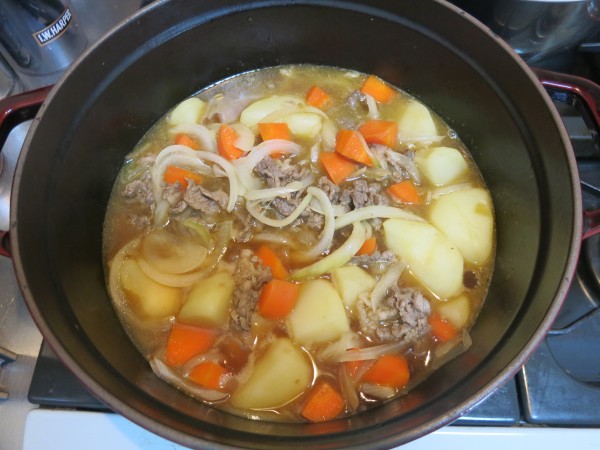
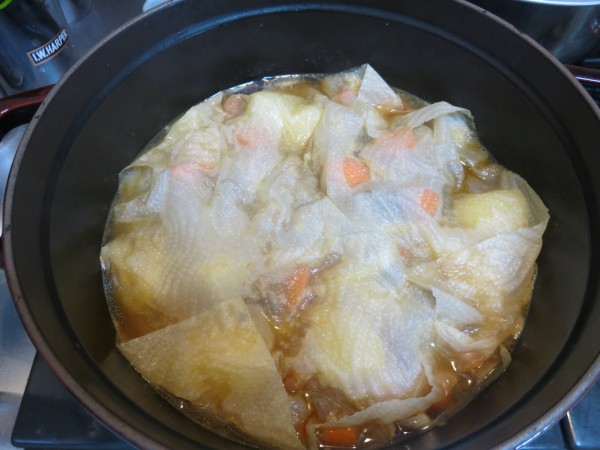
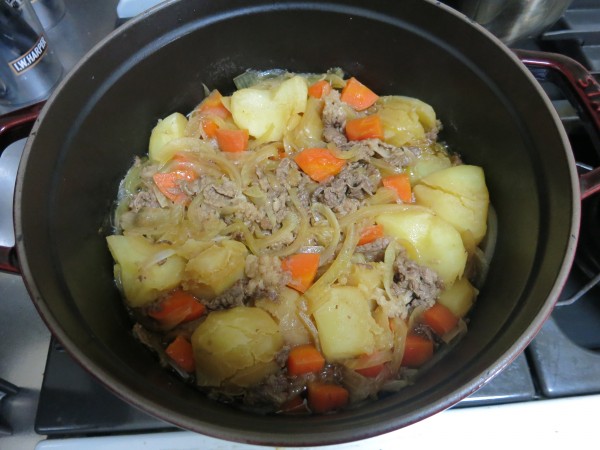
Stay warm and enjoy your holiday season!
